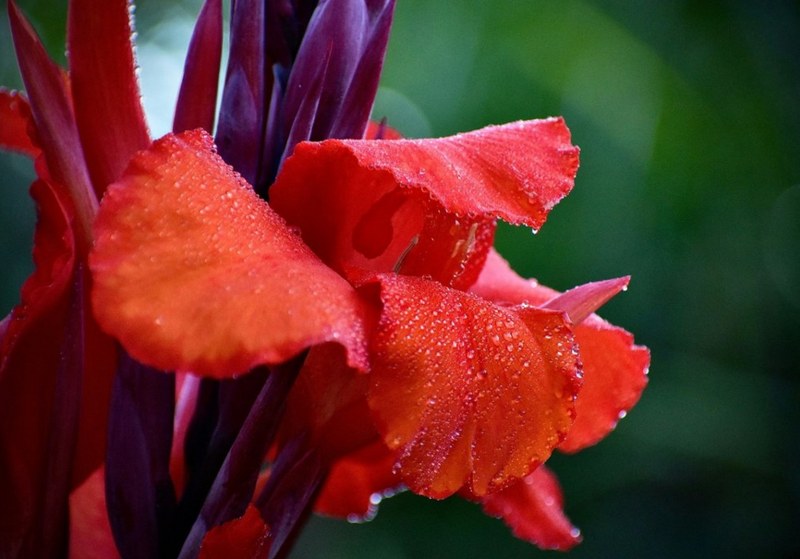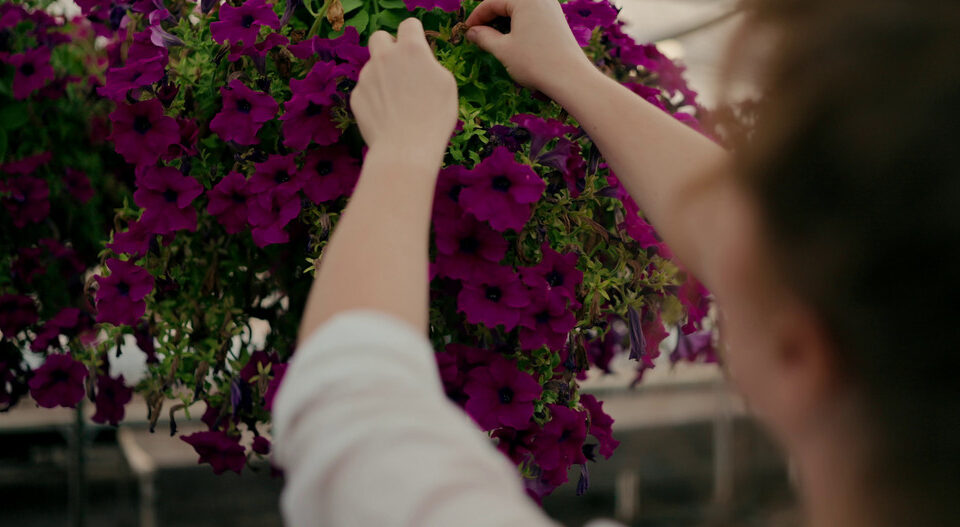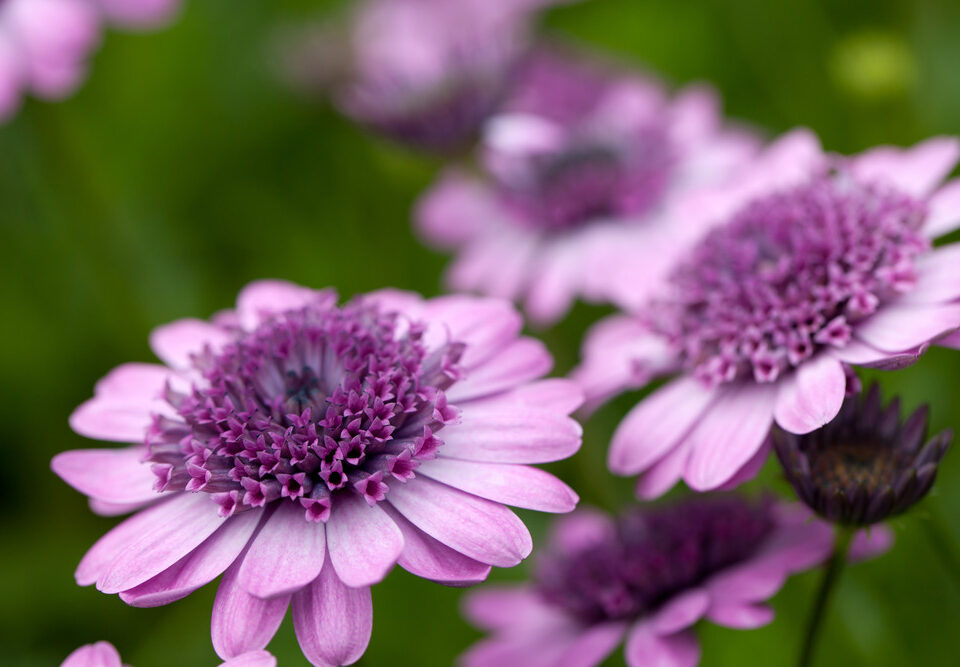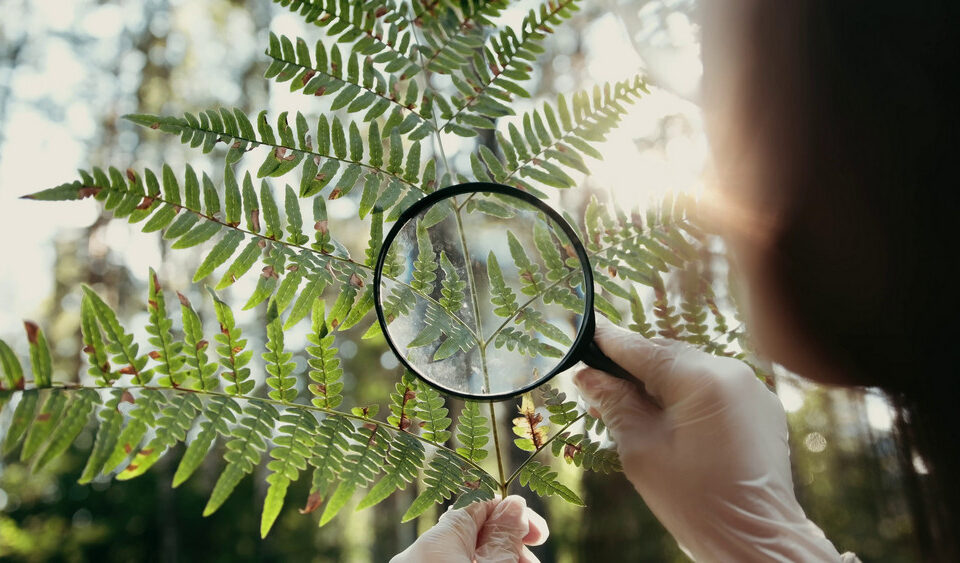
How to Get Rabbits and Deer to Stop Eating Your Plants in Downriver, Michigan
May 23, 2024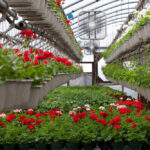
How to Decorate Your Exterior for Spring With Plants
April 14, 2025Have you ever wondered how garden centers get their plants? Here at Schwartz’s Greenhouse in the Downriver region, we grow our plants locally in our Michigan greenhouses. We put a lot of love into our plants to ensure that healthy plants get to your door in time for planting season.
Here’s how we grow our plants and how we make sure our plant babies grow into plant adults that are healthy and ready for your Michigan garden and home.
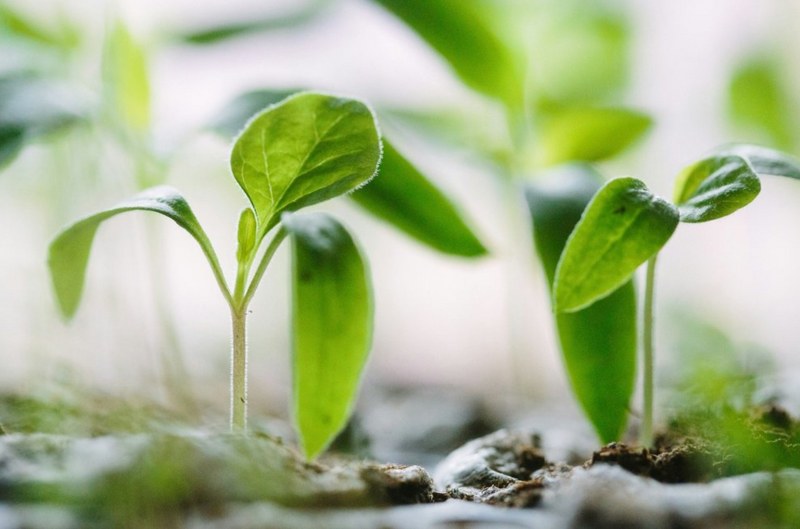 How a Plant is Born
How a Plant is Born
We have thousands of different plants, and we start growing them in January so that we can get them to you in time for spring planting for the Downriver region, Michigan.
From fertilizer to water to soil, all hands are on deck at Schwartz’s Greenhouse. We start with seeds and handle them with kid gloves and paintbrushes. This helps us to weed out any seeds that don’t meet Schwartz’s high quality standards.
Then, we use the best quality dirt for each seed. The soil goes through a series of machines so that it’s broken up and receives additional nutrients that the seeds need to grow into healthy plants. After that, our super cool machines dump dirt into the containers that will hold our healthy plants.
Some containers go through a roller that forms the dirt into shapes that seeds need to be comfortable, cozy, and warm. Other dirt plugs are poked by hand and cuttings are placed gently inside each hole. In fact, some plants are primarily grown from cuttings rather than seeds. Either way, we make sure that our seeds and cuttings are snug, protected, and happy.
We also water our seeds (but not with too much water!) to start their germination processes. We tend to their watering needs as they grow into the healthy plants you see in our Detroit greenhouse. Our plants are already acclimated to the Downriver region since we use Detroit water. We test the water and amend it as necessary. You can check out our rigorous testing procedures by clicking here: “The Rigorous Quality Testing this Michigan Garden Center Uses to Grow the Highest Quality Plants.”
We have about fourteen acres of baby plants that we, well, baby as they grow.
Some of Our Favorite Plants to Grow
While we love all of our plants and are proud to offer thousands of different plants in our Detroit greenhouse, here are some of our favorite plants to grow.
Wave Petunias
Wave Petunias are some of the best annuals available because they have bright, vibrant flowers that create a colorful show in any outdoor space. They work well as container flowers or bedding flowers. Wave Petunias are also hardy flowers that can withstand Michigan’s cold springs and cool falls.
Wave Petunias grow best in full sun and in moist, well-drained soil. Give your flowers a petunia-specific, water-soluble fertilizer every seven days to keep them blooming and vibrant.
Cannas
Cannas are tropical plants that have large blooms at the top and gorgeous foliage below. They can grow to be eight feet tall!
Cannas are flowers that do well in the heat, but they do not tolerate the cold. So, consider planting cannas in containers so that you can bring them inside should there be an unexpected cold front during Michigan’s fall or spring months.
Cannas do best with full sun, monthly fertilizer, and fully saturated soil. These flowers attract Michigan’s butterflies.
Calibrachoa
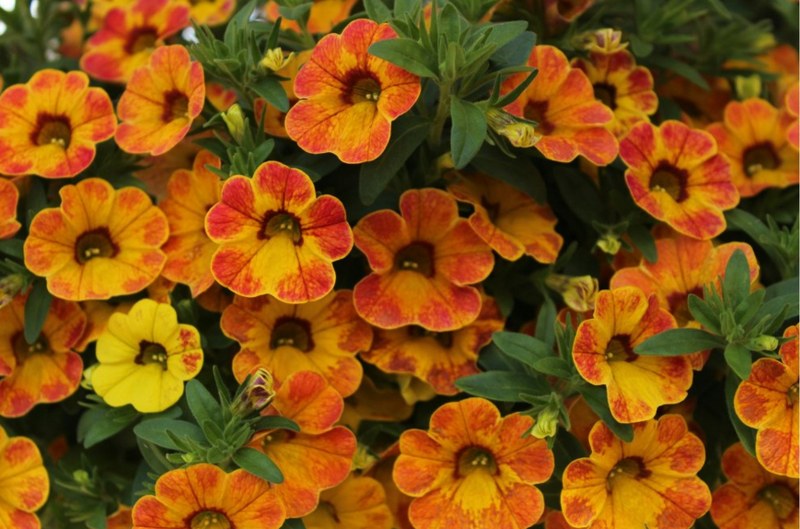 Calibrachoa are prolific bloomers that attract hummingbirds, butterflies, and other Michigan pollinators. They look like baby petunias, and they come in a variety of colors. Calibrachoa also come in solids, patterns, stripes, two-tones, and double blooms.
Calibrachoa are prolific bloomers that attract hummingbirds, butterflies, and other Michigan pollinators. They look like baby petunias, and they come in a variety of colors. Calibrachoa also come in solids, patterns, stripes, two-tones, and double blooms.
Calibrachoa are easy to care for and make for great trailer or spiller flowers (because they “spill” over the rim of containers), window box flowers, and planter flowers. Plus, these flowers are beneficial for Michigan’s pollinators and attract hummingbirds and butterflies.
Calibrachoa do best with full or partial sun, regular watering, and weekly fertilization.
Ferns
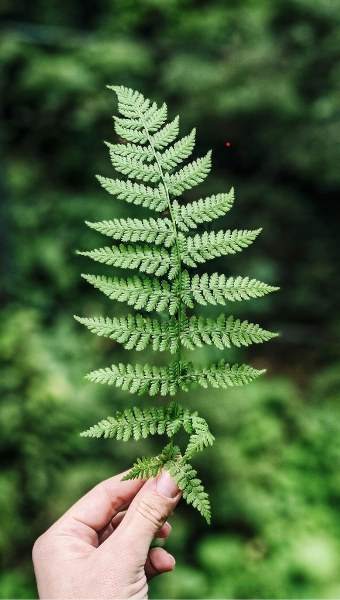 Ferns are great because they can be indoor or outdoor plants. As indoor plants, they can add much-needed greenery to your home. As outdoor plants, ferns work well to give a lushness to your Downriver region garden and help fill in empty spaces.
Ferns are great because they can be indoor or outdoor plants. As indoor plants, they can add much-needed greenery to your home. As outdoor plants, ferns work well to give a lushness to your Downriver region garden and help fill in empty spaces.
Ferns as indoor plants need indirect light, consistent humidity, and monthly feedings with houseplant fertilizer. Bonus: Ferns do well in the same temperatures that you do! So, your house’s temperature will be perfect for indoor ferns. Unless you keep your house at 60 degrees Fahrenheit and, if you do, why? Just why?
Ferns as outdoor plants need partial or full shade and consistent watering to keep their soil moist. As the temperatures turn cold, cover your ferns’ roots during the late fall with a thick layer of mulch to protect your plants from Michigan’s winter.
Visit us at Schwartz’s Greenhouse!
We sell healthy and high-quality plants and gardening supplies, and we have a knowledgeable and friendly staff that is ready to help you with your Downriver region garden. Simply stop by our greenhouse in Romulus, Michigan or give us a call. We’d love to help you! We’re Michigan proud, and we want to make everyone else green with envy over your Michigan garden.
Follow us on social media and sign up for our newsletter to be the first to know about our fun events, discounts, and plant specials.


